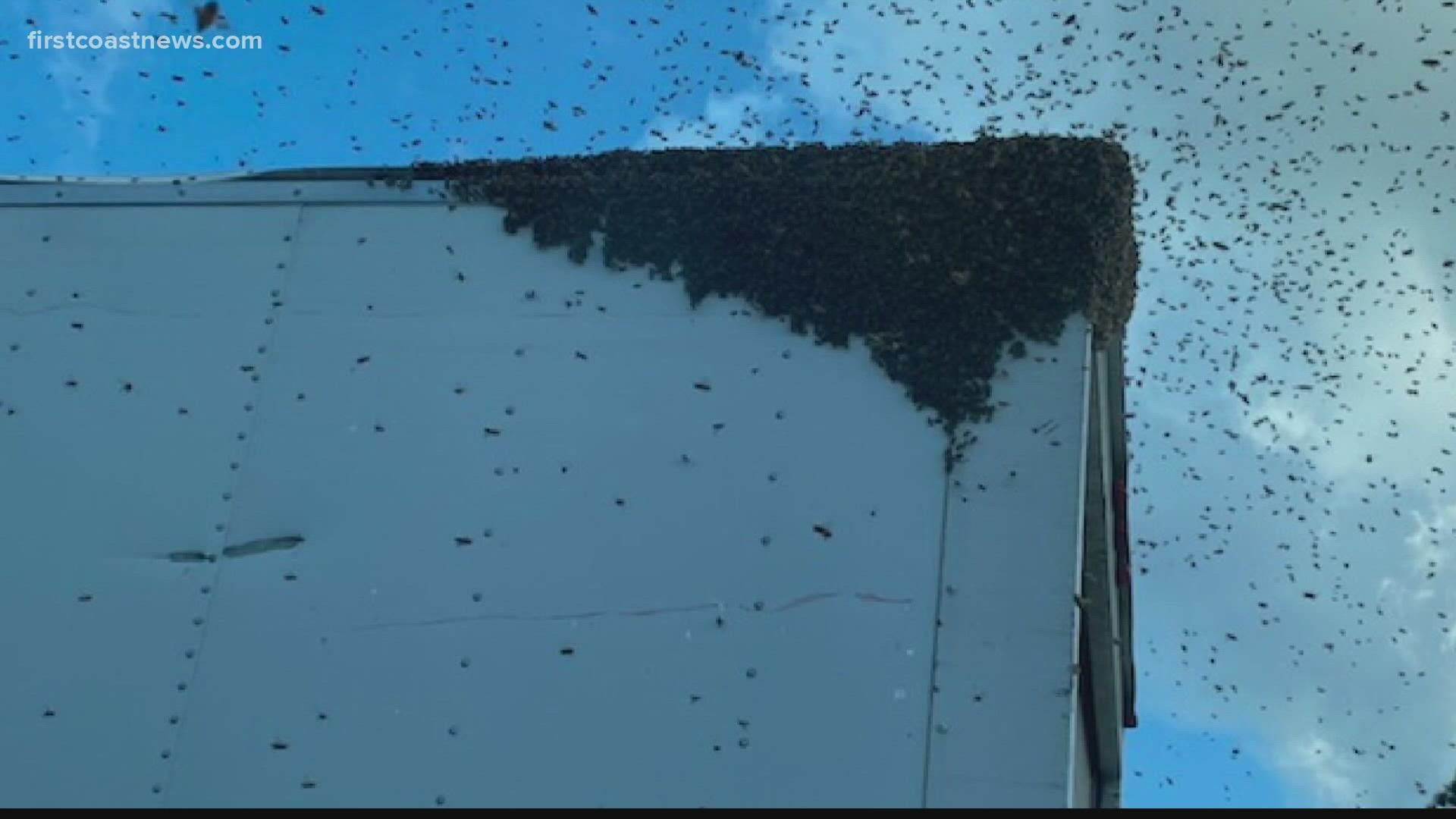JACKSONVILLE, Fla. — It was a nightmare of a traffic jam that got worse in a hurry.
Four separate car accidents on Wednesday afternoon caused major backups and delays on the Buckman Bridge.
As if that weren't enough, bees started to swarm some of the vehicles that were stuck in traffic.
A local beekeeper told First Coast News why bees may have swarmed vehicles and what you should do if you find yourself in that situation.
Drivers were stuck in a sticky situation when backed up traffic on the Buckman Bridge wasn't the only issue they had to worry about.
Bees, thousands of them, escaped a truck that was transporting bees cross country. Some vehicles near the bridge were swarmed with bees.
"They may have needed a resting spot, the bees communicate with pheromones," said beekeeper and owner of Bee Friends Farm, Michael Leach, "Once a few bees start landing in a specific spot, like a pickup truck, other bees will cluster in that same spot."
Leach says that shipping bees across the United States is a big business.
Millions of bees are shipped to different parts of the country to pollinate plants when it is spring in that particular area.
According to Leach, it is currently swarm season for bees. Most of his bees are on their way back from California and he knows this because his trucks have tracking devices, so he knows exactly where they are at all times.
"Now that they're returning in March we'll take those bees and place those bees in areas of forage where they can collect surplus honey that we can bottle and sell down the road," said Leach.
Back to the swarm that we saw on Wednesday - Leach has some advice in case this obscure event happens again.
"Just keep your car windows rolled up and don't open the doors," said Leach, "Usually bees will blow off your car at 30-40 miles per hour, then they'll disperse back into the environment."
And you'll be able to buzz-off without getting stung.

